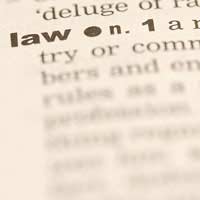The Probate Process

When an individual dies someone must be charged with ‘administering’ the estate. If the deceased person had written a will in which an executor was named, and the nominee chooses to take on the responsibilities, then this task will fall to them. If, on the other hand, no-one has been nominated, then the right to administer the estate will be granted to a relevant person through ‘Letters of Administration’.
Certificates
The first step in the probate process is the acquiring of a Cause of Death certificate. This document describes the reason for the individual’s death, and is required in order for the undertakers to take the body. After this, the death must be formally registered with the Registry of Births, Marriages and Deaths, who will issue an official Death Certificate on presentation of the Cause of Death certificate.The Death Certificate is the most vital document in the probate process, and must be looked after. In order to gain control of many of the assets in the deceased’s estate, you will need to present a Death Certificate to the relevant financial organisation.
If the individual named an executor in their will, the nominee will have to be granted Probate by applying to the Probate Registry. When it is granted, the executor will be given access to the deceased individual’s estate, and will take on the responsibility of disbursing the assets as directed in the will.
If no executor was named, or the individual died intestate (that is, without a will), then a close relative can apply for Letters of Administration, which also gives the successful applicant control over the estate. Generally this individual would be the widower or children of the deceased. Currently there is no legal provision for co-habiting non-married partners in this process, but they can also apply as long as all of the beneficiaries agree.
Valuation
After Probate or Letters of Administration have been granted, the executor or administrator must begin valuing the estate. This must be done in order to work out whether or not the estate is liable for Inheritance Tax, as well as to decide whether or not the available assets will cover all debts and gifts.The executor or administrator must value the estate as if it were selling on the open market at the time of death, and must then arrange for the payment of Inheritance Tax where applicable. This can be a slightly drawn out process, in which the tax must finally be paid within six months of death. This topic is covered in more detail elsewhere on this site.
Once the estate has been valued the executor must then ensure that all of the outstanding debts are paid. This is then followed by the discharging of any instructions in the will, particularly including any gifts that are to be made to beneficiaries. If the individual died intestate then the estate must be discharged according to intestacy laws, which are also covered elsewhere on this site.
Finally, once all of these tasks have been completed, the executor should review all of their actions in order to ensure that the correct amount of IHT has been paid; any mistakes should be rectified at this stage in order to avoid further confusion.
Business Energy With a Difference
If you are looking for business energy or need advanced solutions like remote energy monitoring, new supplies, downgrading or upgrading capacity, have a no obligation chat with Purely Energy.
To find our more get in touch here. or call 0161 521 3400.








